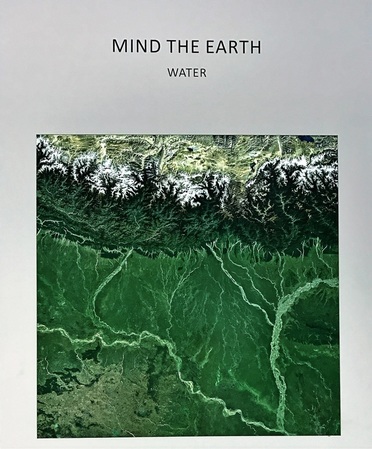 This is a photo that was provided at COP22, showing the glaciers on the Himalayan mountains. The Himalayan glaciers are considered the “water towers” of Asia and a source of water for other rivers that are surrounding; such as the Indus and the Ganges. During the COP22 conference it has been brought to attention that glaciers located on Mount Everest are predicted to melt due to the increase in the temperature rise. Increasing the rate at which these glaciers are melting endangers both the environment, animals, and human life. One of the panels suggests “Accelerated melting of the Himalaya glaciers could affect over a billion people who depend directly on the water from the Himalayas for both farming and hydropower.” Reducing the greenhouse emissions, will greatly affect the melting of these glaciers and society should push more countries to sign to the Paris Agreement. Wheat fields in India have been a big market and food source for the country throughout the years. Punjab, India is considered one of the “bread baskets” of the world for the amount of wheat and bread they produce. Though, India has been having malnutrition throughout the wheat fields because of the decreasing level in groundwater. India has become very concerned about the wheat fields and what is to happen in the future with producing bread because of this issue. Another issue similar to wheat in India is rice in China. China has seen that with the temperature rising throughout the world and an increase in methane emissions, the yield of rice has started to decrease. Of course with losing rice, the price of rice is predicted to rise to 32-37% as well as the yield only being 10-15%. Rice is a main product and marketing factor in China and will have a detrimental effect on the economy. The left picture below is a picture of an India wheat field and the picture on the right below is a rice field in China. COP22 has taken an interesting aspect of promoting climate change at this Marrakech convention. Being mainly in the green zone, I have noticed that the youth is really taking an act on climate change because we are the ones to be affected in the future years. My interest in food and water came about when deciding between an issue to cover for the American Chemical Society meeting in the spring at San Francisco. I have learned a lot about public health, specifically ways to better food and water throughout the world. I meet with a group called Indu and they focused on bacteria in water and ways to reduce it. I found this most interesting because it was so simple with the process. There is a plant called endive, which is very leafy and bitter. The endive contains folate, fiber, and vitamins A and K. To start the process Indu treated the endives with sunlight then moved them to a dark refrigerator for 21 days. The purpose of the darkness is to ensure the endives do not open up, resulting in loss of nutrients and moisture. In the refrigerator where the endives are kept is a continuous flow of water to keep the endives moist. After 21 days, the endives are fed to the fish to be digested and to then have a chemical produced to reduce bacteria in the water. I thought this was super cool because of how natural and easy this process can be completed. References:
COP22 Green Zone
21 Comments
Hannah Kruelle
17/11/2016 11:42:53 am
I think the issue with decreasing ground water was very good to call peoples attention to, it has such a big impact on the people that live there, as well as anyone they made trade their products with.
Reply
Oriana Hancock
17/11/2016 02:49:03 pm
Did the Indu group discuss the main benefits of reducing the bacteria in water? I was thinking along the lines of trying to increase the supply of natural drinking water (particularly for third world countries).
Reply
Jonathan Marin
17/11/2016 05:55:12 pm
I understand that the purpose of putting the endive plant in a dark refrigerator is for it to stay closed and lose nutrients and moisture, but what is the point of that? So the fish are more inclined to eat it? Also, what/where is the endive's origin?
Reply
Stephen Weyant
18/11/2016 10:31:21 am
With the glaciers apparently melting on Mount Everest, will this change the oxygen levels? I now that Everest climbers have to train themselves to adjust to the oxygen levels, so I was just wondering if this would change their experience.
Reply
Lindy Peters
18/11/2016 10:33:08 am
Why do you think people do not believe in climate change? Does it worry you that Donald Trump does not believe in climate change?
Reply
Dominic Bettencourt
18/11/2016 10:50:53 am
Why did Portugal not sign the Paris agreement
Reply
Luke Babinchak
18/11/2016 10:52:20 am
What do you think the effects of Donald Trump becoming President will do for the process to combat climate change since he has stated that he does not believe in climate change?
Reply
Eric Torres
19/11/2016 05:29:43 pm
I also find the process with the endive fascinating as well. But does the endive target a specific bacteria? It would be negative if potentially helpful bacteria are killed in the process.
Reply
Zoe Prats
20/11/2016 08:58:13 am
The effects of climate change on food yield is certainly concerning. Reducing global greenhouse emissions will definitely improve this situation. If conditions do not improve, do you foresee humans actively pursuing hydroculture to grow certain dwindling crops? Rice is typically grown in low-lying deltas/coastal regions, so I would hope that moving crops to a growth medium other than soil would prevent crops from being flooded as a result of sea level rise.
Reply
Krysten Dema
20/11/2016 09:43:02 am
I think addressing issue in regards to the wheat and rice is a good approach to bringing the importance of climate change. Do you think if the changes occur not only would the climate change for the better, but also improve or sustain economic conditions?
Reply
Emily Greeningere
20/11/2016 01:46:41 pm
I find this process to be very interesting! One question that I have about it though is do only a specific type of fish eat the endives or is it eaten by a variety of different fish?
Reply
Melissa Marte
21/11/2016 08:37:44 am
How do you think the rise in price of rice in China, will effect the population? If this does happen, what do you think China should do to preserve plants and grow rice and other foods?
Reply
Kyle Frost
21/11/2016 11:19:38 am
I thought the endives were very interesting and so simple. How has this not been discovered before?
Reply
Haley Mitchell
21/11/2016 05:51:33 pm
I think the process is a very good way to reduce the bacteria in water, but have they actually started using this method or has is just been an experiment? If they haven't started using it when do you think they will, or if they have, where has this method been used?
Reply
Caroline Liu
21/11/2016 06:21:17 pm
What are your views on GMOs to combat the impact of of climate change on food yield? Would they be a more sustainable source?
Reply
April Einsig
22/11/2016 05:03:21 am
Do the nutrients in the endives cause the chemical that is released by the fish?
Reply
Sierra Pari
26/11/2016 12:06:39 pm
This process is quite interesting, and very simple at the same time but are there any downside to it?
Reply
Samantha Choi
27/11/2016 09:23:00 pm
The endives are a very interesting, do you think they should be further incorporated? As in should they be used more?
Reply
Tyler Pocasangre
28/11/2016 04:56:53 pm
I agree that the melting of the Himalayan mountain will cause huge problems for farming and hydro power systems. The glaciers also trap a good amount of CO2. With the melting of glacier it would increase the amount of CO2 into the air. This would be added on to the mass of amount of CO2 produced from burning fossil fuels.
Reply
Rachel Martin
29/11/2016 09:03:58 am
Where is the endive plant being used to reduce bacteria in the water? Is this plant used only in certain countries?
Reply
Taheerah Santiago
30/11/2016 07:09:03 am
I think it is very interesting that you took the interest and was able to meet the Indu group to discuss the effects of climate change. What in your opinion is the biggest concern with climate change? I also found it alarming that the glaciers on Mount Everest were predicted to melt.
Reply
Leave a Reply. |
Categories
All
Archives
March 2024
|
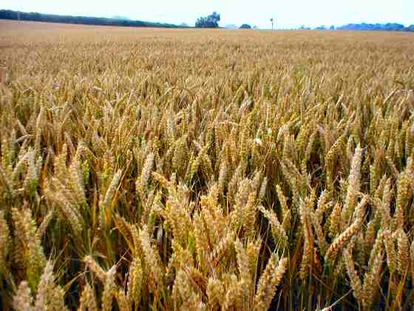
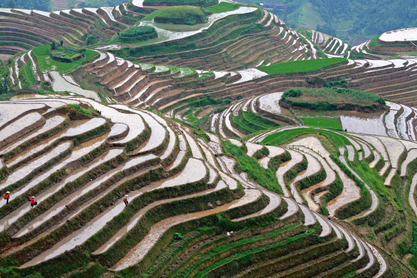
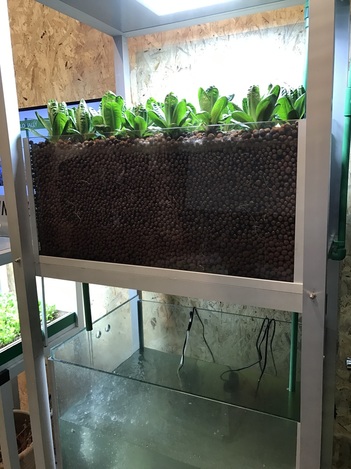
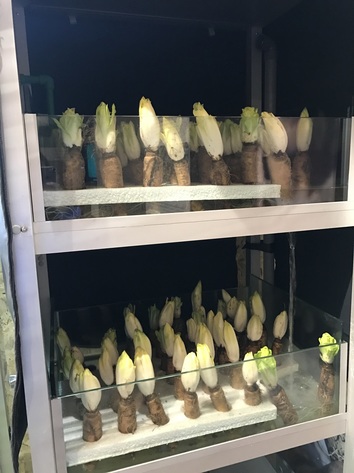
 RSS Feed
RSS Feed
